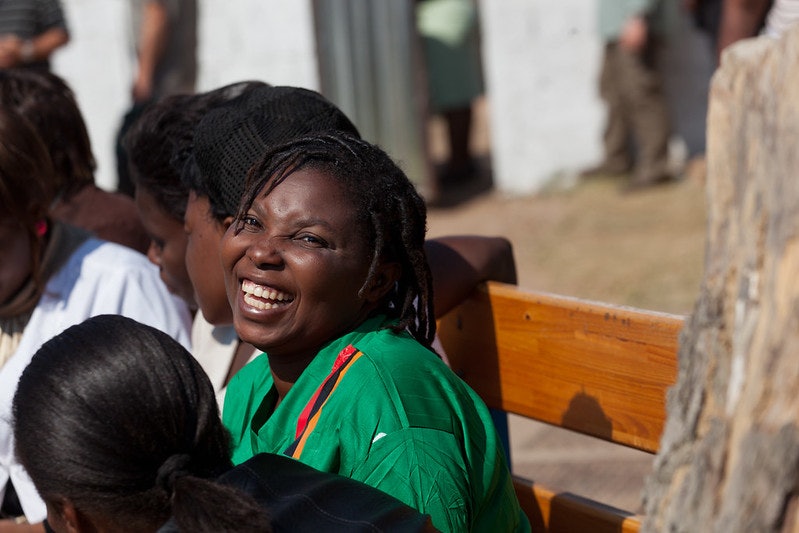Go Further is an innovative public-private partnership between the U.S. President’s Emergency Plan for AIDS Relief, the George W. Bush Institute, UNAIDS, Merck, and Roche. The partnership aims to reduce new cervical cancer cases among women living with HIV (WLHIV) in 12 sub-Saharan African countries.
Este documento esta disponível em português aqui (PDF)
Executive Summary
Cervical cancer is a disease of inequity and differential susceptibility. The most common cause of cervical cancer is persistent infection by the human papillomavirus (HPV). Other factors that contribute include inadequate screening levels, socioeconomic status, lack of health care access, little public awareness, and, critically, coinfection with HIV. Indeed, the link with HIV is particularly relevant in Africa: Women living with HIV (WLHIV) are six times more likely to develop cervical cancer than women without HIV. Many WLHIV live in low- and middle-income countries (LMICs), where the rate of coinfection is high. Seven times more women will die of cervical cancer in sub-Saharan Africa this year than in North America and Western Europe. This is unacceptable.
The good news is that cervical cancer has garnered increased attention, and we all know that it can be prevented and treated if it’s caught early. That’s why both vaccination and screening programs remain essential to reducing the burden of cervical cancer worldwide.
At the George W. Bush Institute, we’re glad to be part of the Go Further partnership with PEPFAR, UNAIDS, Merck, and Roche to tackle cervical cancer, especially among WLHIV.
But even with the critical progress we’ve made in screening – especially over the past three years through the increased focus and funding from PEPFAR as part of the Go Further partnership – we’re still losing thousands of women to avoidable cervical cancer death every year. Resources have been infused into the front end of the continuum of care, particularly for screening and treatment of precancerous lesions, while resources and infrastructure for advanced treatment haven’t kept pace. We need to accelerate resources and creative thinking for advanced cancer treatment so that we don’t keep losing women across sub-Saharan Africa to cervical cancer. COVID-19 lockdowns, restrictions, and fear have only exacerbated existing challenges.
But at the Bush Institute, we are optimists. We know that the tools and the resources exist to close this gap and give women the chance at the healthy and vibrant lives that they and their children deserve.
We have seen progress, but more remains to be done. Let’s work together to beat the burden of cervical cancer and to improve the lives of women and families around the world today. We have no reason to wait.
Continue reading the full report (PDF)
Este documento esta disponível em português aqui (PDF)































